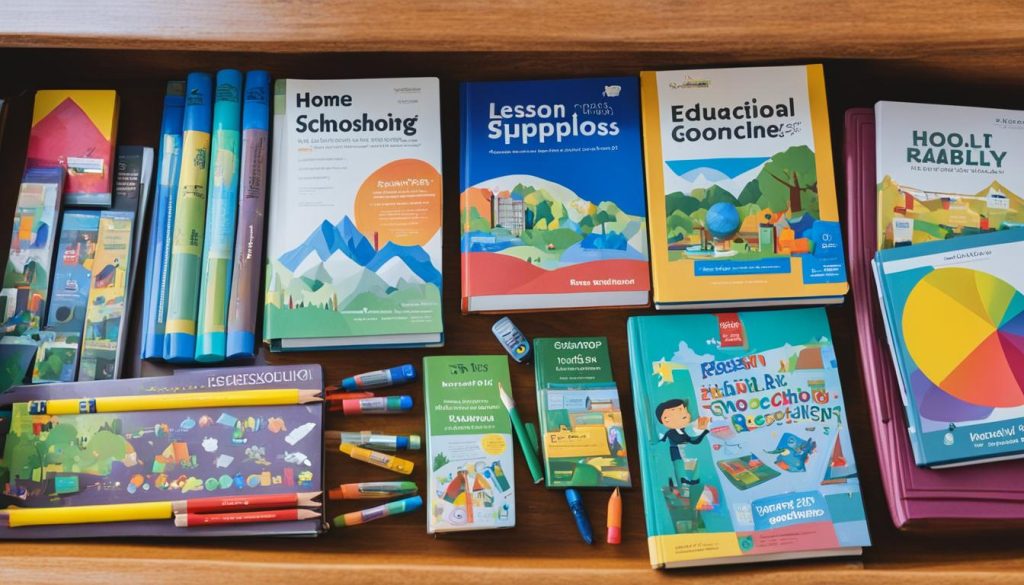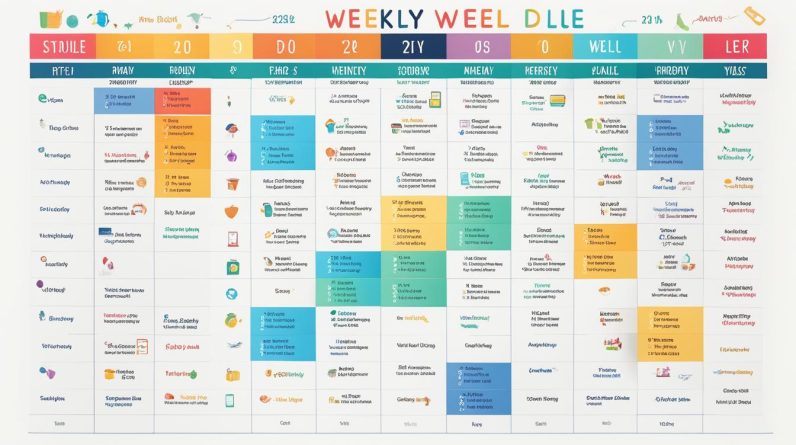Are you contemplating the idea of homeschooling your child? As you navigate this decision, it’s essential to weigh the benefits and drawbacks of homeschooling, consider your child’s individual needs, and understand the requirements and laws surrounding homeschooling.
Homeschooling presents a significant lifestyle change, as parents take on the dual roles of teacher and administrator. While it provides the opportunity for greater educational freedom and personalized learning experiences, it also comes with added responsibilities and potential financial costs.
Before making your decision, take the time to explore the pros and cons of homeschooling. Consider how homeschooling curriculum and resources can be tailored to your child’s specific interests and goals. Reflect on the impact homeschooling may have on your child’s socialization and engagement in team sports and activities.
Homeschooling is not for everyone, but for those who choose it, the rewards can be significant. In this article, we will delve into the pros and cons of homeschooling, examine socialization and academic freedom in homeschooling, provide tips for making your decision, and share personal experiences from one homeschooling family.
Key Takeaways:
- Consider the pros and cons of homeschooling before making a decision.
- Explore homeschooling curriculum and resources to personalize your child’s education.
- Understand the socialization opportunities available to homeschoolers.
- Recognize the academic freedom homeschooling offers for tailored learning experiences.
- Seek advice and support from experienced homeschoolers and educators.
Pros of Homeschooling
Homeschooling offers several benefits that can greatly impact your child’s education and overall development. Let’s explore some of the key advantages:
1. Direct Involvement in Your Child’s Learning
One of the biggest advantages of homeschooling is the opportunity for parents to have more direct involvement in their child’s daily learning. Unlike traditional schooling, where parents often have limited visibility into the classroom and curriculum, homeschooling allows you to be actively engaged in your child’s education journey. You can tailor the teaching methods and materials to suit their learning style and provide personalized attention to address any educational challenges they may encounter.
2. Alignment with Your Goals and Values
Homeschooling offers the unique advantage of aligning education with your personal goals and values. You have the freedom to choose the curriculum that reflects your beliefs, incorporates your desired educational outcomes, and promotes the values that are important to your family. This flexibility allows for a more holistic approach to education, fostering not just academic growth but also character development and moral values.
3. Stronger Parent-Child Relationships
Homeschooling provides an excellent opportunity to build stronger relationships with your children. Spending more time together in a supportive and nurturing learning environment allows for deeper connections and understanding between parents and children. You can create lasting bonds based on trust, respect, and shared experiences, fostering a positive learning atmosphere and a sense of togetherness as a family.
4. Flexibility in Curriculum and Pace
One of the greatest benefits of homeschooling is the flexibility it offers in terms of curriculum and pace. You have the freedom to adapt the curriculum to meet your child’s individual needs, interests, and learning styles. This personalization of education ensures that your child can truly thrive academically and explore their passions. Additionally, homeschooling allows for a flexible schedule, enabling your child to learn at their own pace, delve deeper into subjects of interest, and receive the necessary support and guidance whenever required.
5. Access to a Wide Range of Resources
Homeschoolers have access to an extensive array of resources to enhance their learning experience. From textbooks and online courses to educational apps, videos, and interactive materials, you can choose the resources that best suit your child’s learning style and interests. Furthermore, homeschooling opens up endless opportunities for unique educational experiences outside the traditional classroom setting, such as museum visits, community service projects, field trips, and internships.
Homeschooling offers numerous advantages that empower both children and parents to create a tailor-made educational journey. The flexibility, personalization, and direct involvement in your child’s learning are just a few of the benefits that make homeschooling a compelling option for many families.
Cons of Homeschooling
Homeschooling, while offering numerous benefits, also presents challenges that must be considered. It is vital to weigh both the pros and cons to make an informed decision about your child’s education. Here are some of the potential drawbacks of homeschooling:
Limited Time for Parents
Homeschooling places significant demands on parents who take on the roles of both teachers and administrators. This means dedicating substantial time and effort to planning lessons, arranging activities, and overseeing their child’s education. As a result, parents may find themselves with less personal time, which can lead to added stress and fatigue.
Financial Considerations
Homeschooling may require families to make financial adjustments. Parents who choose to homeschool may need to forego a second income or reduce their work hours to accommodate their child’s education. This can result in tighter family budgets and financial constraints, requiring careful financial planning and resourcefulness.
Limited Socialization Opportunities
One concern often raised about homeschooling is the potential impact on a child’s socialization with peers their own age. Traditional schooling provides daily interactions with classmates, team sports, and extracurricular activities that promote social skills and the development of interpersonal relationships. Homeschooling may limit these opportunities, although there are alternative ways to address socialization needs through local homeschool groups, co-op classes, and community activities.
Awareness of Homeschooling Requirements and Laws
Every state has its own homeschooling laws and requirements that parents must adhere to. Familiarizing yourself with these regulations is crucial to ensure compliance and avoid any legal issues that may arise. It is necessary to research and understand the homeschooling laws specific to your state before embarking on this educational journey.
While homeschooling has its challenges, it also offers unique advantages that may outweigh these concerns. It is important to carefully evaluate your family’s needs, resources, and goals in order to make the best decision for your child’s education.
Pros and Cons of Homeschooling
| Pros of Homeschooling | Cons of Homeschooling |
|---|---|
| Greater control over curriculum and educational approach | Requires careful planning and time management |
| Builds strong parent-child relationships | May result in less personal time for parents |
| Flexible scheduling and individualized learning | Financial considerations and potential income loss |
| Access to a wide range of educational resources | Limited socialization opportunities with peers |
| Unique learning experiences outside the traditional classroom | Requirement to be aware of homeschooling laws and regulations |

Socialization in Homeschooling
Homeschool socialization is often misunderstood. While homeschoolers may have less exposure to peer pressure and bullying, they still have opportunities to interact with peers and participate in sports and activities outside of traditional school settings. Homeschoolers often have more community involvement, socializing with a wider range of adults and participating in field trips and hands-on learning experiences. It is important to recognize that socialization in homeschooling is different, not lacking.
Contrary to popular belief, homeschoolers have ample chances for socialization. In fact, homeschooling allows for more diverse social interactions beyond just peer groups. Without the pressure of conforming to social norms, homeschoolers have the freedom to connect with individuals of various age groups and backgrounds. They engage in real-world experiences, interacting with adults and professionals in various fields, which enhances their social skills and broadens their perspectives.
“Homeschooling offers unique socialization opportunities that traditional schooling may not provide. Students can engage in more meaningful conversations and form deeper connections with people of all ages, fostering empathy, tolerance, and respect.”
Field trips and community activities also play a significant role in homeschool socialization. Homeschoolers have the flexibility to explore their communities, attending cultural events, volunteering, and interacting with experts in different fields. These experiences promote a well-rounded social development that extends beyond the classroom walls.
| Pros of Socialization in Homeschooling | Cons of Socialization in Homeschooling |
|---|---|
|
|
It is essential to understand that socialization in homeschooling is not lacking, but rather offers unique benefits. Parents play a crucial role in facilitating social interactions, providing their children with a diverse range of experiences and connections. By embracing the opportunities for socialization outside the traditional school setting, homeschoolers can develop well-rounded social skills that prepare them for the complexities of the real world.
Academic Freedom in Homeschooling
One of the greatest benefits of homeschooling is the academic freedom it provides. Unlike traditional schools that follow a fixed curriculum, homeschoolers have the flexibility to tailor their educational approach and curriculum to meet their child’s unique needs and interests.
By customizing the curriculum, homeschoolers can ensure that their child achieves mastery in various subjects and can progress at a pace that suits their learning style. Whether a child needs extra time to grasp a concept or is ready to move ahead, homeschooling allows for personalized instruction and individualized attention.
This personalized approach to learning can lead to a deeper understanding of concepts and foster greater engagement. Homeschooled students have the freedom to delve deeper into topics they find fascinating or spend more time on areas that require additional attention. This allows for a more comprehensive and enriched educational experience.
Homeschooling also provides ample opportunities for hands-on learning and real-world experiences. Without the constraints of a traditional classroom, families can explore the world around them and engage in practical applications of academic concepts.
Imagine studying biology by going on nature hikes, conducting experiments in the kitchen, or observing wildlife in local parks. These hands-on experiences not only enhance learning but also make it more enjoyable and memorable for the child.
Benefits of Academic Freedom in Homeschooling:
- Customizable curriculum to meet individual needs and learning styles.
- Flexible pace of learning to accommodate different levels of comprehension.
- Opportunities for deeper understanding and exploration of subjects.
- Hands-on learning experiences that make education more engaging.
The academic freedom provided by homeschooling empowers parents to create a well-rounded education that fosters their child’s intellectual growth and curiosity.

| Pros of Academic Freedom in Homeschooling | Cons of Academic Freedom in Homeschooling |
|---|---|
|
|
Making the Decision to Homeschool
Deciding whether to homeschool your child requires careful consideration. It is important to reflect on your reasons for wanting to homeschool and to understand the pros and cons.
Researching homeschooling options, connecting with local homeschool communities, and seeking advice from experienced homeschoolers can provide valuable insights. Hearing about the real-life experiences of others who have traveled this path can help you make an informed decision that is right for your child.
Remember to take into account the homeschooling requirements and laws in your state. Familiarize yourself with the legal obligations and documentation needed to ensure compliance with local regulations.
By gathering as much information as possible, you will be equipped to make a well-informed choice regarding your child’s educational journey.

Image: A child sitting at a desk, reflecting on the decision to homeschool.
Homeschooling Decision Checklist
- Reflect on your reasons for wanting to homeschool
- Consider the pros and cons of homeschooling
- Research homeschooling options and curriculum
- Connect with local homeschool communities
- Seek advice from experienced homeschoolers
- Familiarize yourself with homeschooling requirements and laws
Quote
“The decision to homeschool is a deeply personal one, and what works for one family may not work for another. Take your time, do your research, and trust your instincts. Ultimately, you know your child best and can make the right decision for their education.” – Emily Johnson, Experienced Homeschooler
Pros and Cons of Homeschooling
| Pros | Cons |
|---|---|
| Personalized learning | Added responsibility for parents |
| Flexible curriculum | Potential loss of income |
| Stronger parent-child relationships | Possible limitations on socialization |
| Individualized pace | Time commitment and planning |
| Opportunities for unique educational experiences | Potential challenges in finding resources and support |
Questions to Ask Yourself
When considering homeschooling, it is important to ask yourself a series of important questions. By reflecting on these key aspects, you can make a well-informed decision about whether homeschooling is the right choice for your child.
Your Motivations
Take a moment to understand your motivations for wanting to homeschool. Are you seeking to provide a more personalized education? Do you have concerns about your child’s current learning environment? Knowing your reasons will help guide your decision-making process.
Examining the Pros and Cons
Evaluate the pros and cons of homeschooling in relation to your child’s needs and your family’s circumstances. Consider the benefits of academic freedom, personalized learning, and flexibility in curriculum. Balance these advantages with potential challenges such as time commitment, financial implications, and availability of socialization opportunities.
Educational Goals
Establish clear educational goals for your child. Consider what you want to achieve through homeschooling and how it aligns with your child’s learning style, interests, and future aspirations. This will help shape your homeschooling approach and curriculum.
Socialization Opportunities
Think about the socialization opportunities available to your child outside of a traditional school environment. Assess the level of support you will have from your spouse, extended family, and friends in providing social interactions and enriching experiences for your child.
Time Commitment and Financial Implications
Consider the time commitment required for homeschooling, including planning lessons, providing instruction, and managing administrative tasks. Additionally, evaluate the financial implications, such as potential loss of income or possible costs associated with homeschooling resources.
Your Child’s Desires
Take into account your child’s own desires and reasons for wanting to be homeschooled. Engage in open and honest conversations with your child to understand their preferences and ensure their active participation in the decision-making process.
Taking the time to reflect on these questions will help you make an informed decision about whether homeschooling is the right path for your child and family.
| Questions to Ask Yourself | Considerations |
|---|---|
| Your Motivations | Understanding your reasons for homeschooling |
| Examining the Pros and Cons | Evaluating the advantages and challenges of homeschooling |
| Educational Goals | Establishing clear objectives for your child’s education |
| Socialization Opportunities | Assessing available opportunities for social interaction |
| Time Commitment and Financial Implications | Evaluating the required time and potential costs |
| Your Child’s Desires | Taking into account your child’s preferences |

Tips for Making Your Decision
Making the decision to homeschool can be daunting, but with a few tips, you can navigate through the process more confidently. Consider the following suggestions to help you in the decision-making journey:
- Seek advice from experienced homeschoolers and educators: Connect with the homeschooling community in your area or online to gain valuable insights and guidance. Experienced homeschoolers can provide firsthand knowledge and share their best practices.
- Trust your instincts: Listen to your gut feelings when considering homeschooling. You know your child better than anyone else, so trust your intuition and make decisions that align with your child’s needs and goals.
- Use the Freudian flip technique: Gain a deeper understanding of your true feelings about homeschooling by employing the Freudian flip. This technique involves considering the opposite perspective and exploring any underlying motivations or concerns that surface.
- Remember flexibility is key: If you decide to homeschool and find that it doesn’t work out as expected, don’t be discouraged. Homeschooling is a dynamic process, and you can always reassess and make changes along the way to better meet your child’s educational and social needs.
Personal Insight:
“When we began our homeschooling journey, we reached out to a local homeschooling group for advice and support. Their guidance and personal experiences gave us the confidence to make the leap. Trusting our instincts and seeking advice from others were crucial in ensuring that homeschooling was the right choice for our family. Remember, you are not alone in this decision, and there is a wealth of support and knowledge available to guide you.”
| Pros of Making Your Own Decision | Cons of Making Your Own Decision |
|---|---|
| Ability to align education with your goals and values | Initial overwhelm and uncertainty |
| Flexibility in curriculum and pace | Possible lack of support from friends and family |
| Opportunity to build stronger relationships with your child | Added responsibility as both teacher and administrator |
| Greater involvement in your child’s daily learning | Financial costs |
Personal Experience: How We Made Our Decision to Homeschool
When faced with the frustration and lack of engagement that our child experienced in the traditional school system, we knew we had to find an alternative. After much research, discussions with friends who were already homeschooling, and even consulting with public school teachers, we made the decision to homeschool our child. And we haven’t looked back since.
One of the biggest factors that influenced our decision was the flexibility and customization that homeschooling offers. We wanted to create a curriculum that aligned with our child’s interests and learning style, allowing them to explore subjects in greater depth and at their own pace. This ability to tailor the education experience has been invaluable in nurturing our child’s love for learning.
Another important aspect was the abundance of homeschooling resources available. From online platforms and educational websites to local libraries and community programs, we discovered a wealth of materials to support our curriculum and enhance our child’s education. This wide range of resources has allowed us to provide a well-rounded and comprehensive homeschooling experience.
Of course, we also considered the potential drawbacks of homeschooling. We recognized that taking on the role of both teacher and parent would require careful planning, time management, and dedication. It’s not always easy, but the rewards have far outweighed the challenges. We’ve witnessed the positive impact that homeschooling has had on our child’s overall well-being and academic growth.
We made the decision to homeschool because we wanted to provide an education that was tailored to our child’s needs and allowed them to thrive. And we can confidently say that it has been the right choice for our family.
It’s important to note that homeschooling is a personal decision and may not be the right fit for everyone. Each family must carefully consider their unique circumstances, educational goals, and the homeschooling laws and requirements in their state. However, for us, homeschooling has provided the flexibility, customization, and quality education we were seeking for our child.
Homeschooling Curriculum:
| Subject | Curriculum |
|---|---|
| Math | Saxon Math |
| Language Arts | IEW (Institute for Excellence in Writing) |
| Science | Apologia Science |
| Social Studies | Story of the World |
| Foreign Language | Rosetta Stone |
| Arts | Various online resources and local classes |
This is just a glimpse into our homeschooling curriculum, which is designed to meet the specific needs and interests of our child. We have carefully selected resources and materials that align with our educational philosophy and provide a well-rounded education.
Ultimately, the decision to homeschool is a personal one, and it requires careful consideration. It is important to weigh the pros and cons, explore available resources, and ensure compliance with homeschooling laws and requirements. But for our family, homeschooling has been a rewarding and successful educational journey.
Final Thoughts on Homeschooling Decision
Deciding whether to homeschool your child is a significant choice that should be based on your unique circumstances. It requires careful consideration of the pros and cons, reflection on your goals and motivations, and seeking advice from others who have experience in homeschooling. Remember, you are the best judge of what is right for your child’s education.
As you weigh the decision, think about the advantages and disadvantages of homeschooling. Consider the flexibility and individualized curriculum that homeschooling offers, as well as the potential challenges such as time commitment and financial implications. It’s also essential to familiarize yourself with the homeschooling requirements and laws in your state to ensure compliance.
Trust that you are making the best choice for your child’s future. Homeschooling allows for a personalized approach that can nurture their strengths, interests, and learning style. Ultimately, you have the power to provide an education that aligns with your family values, goals, and beliefs.
Remember, the decision to homeschool is not set in stone. You can always reassess and make changes along the way if needed. Stay connected with homeschooling communities, seek support from experienced homeschoolers, and keep yourself informed about resources and strategies that can enhance your homeschooling journey.
FAQ
Should I homeschool my child?
Deciding whether to homeschool your child requires careful consideration. It is important to reflect on your reasons for wanting to homeschool and to understand the pros and cons. Researching homeschooling options, connecting with local homeschool communities, and seeking advice from experienced homeschoolers can provide valuable insights. It is also important to be aware of the homeschooling requirements and laws in your state.
What are the benefits of homeschooling?
Homeschooling offers several benefits, such as more direct involvement in your child’s daily learning, the ability to align education with your goals and values, and the opportunity to build stronger relationships with your children. It provides flexibility in curriculum and pace, allowing for personalized learning. Homeschoolers have access to a wide range of resources and can take advantage of unique educational experiences outside the traditional classroom setting.
What are the pros and cons of homeschooling?
Homeschooling represents a major lifestyle change, with parents taking on the role of both teacher and administrator. It also comes with added financial costs, although there are ways to minimize expenses. Homeschooling allows for unique socialization opportunities and greater educational freedom. However, it requires careful planning and time management, and may result in less time for parents themselves. Financial considerations must be taken into account, and homeschooling may limit opportunities for team sports and socialization with peers.
How does homeschooling compare to traditional schooling?
Homeschooling offers personalized learning and flexibility in curriculum and pace, while traditional schooling follows a set curriculum and schedule. Homeschooling allows for more direct involvement in your child’s education and the ability to align learning with your values and goals. However, traditional schooling provides opportunities for socialization with peers and access to a wider range of extracurricular activities.
What are the homeschooling requirements and laws?
Homeschooling requirements and laws vary by state. It is important to be aware of the legal requirements and regulations in your state, such as notification and record-keeping requirements, testing and assessment guidelines, and any specific curriculum or teacher qualifications. Researching your state’s homeschooling laws and connecting with local homeschooling organizations can help you understand the specific requirements in your area.
How does homeschooling impact socialization?
Homeschool socialization is often misunderstood. While homeschoolers may have less exposure to peer pressure and bullying, they still have opportunities to interact with peers and participate in sports and activities outside of traditional school settings. Homeschoolers often have more community involvement, socializing with a wider range of adults and participating in field trips and hands-on learning experiences. It is important to recognize that socialization in homeschooling is different, not lacking.
Does homeschooling provide academic freedom?
One of the greatest benefits of homeschooling is its academic freedom. Homeschoolers have the flexibility to tailor their curriculum to their child’s needs, allowing for mastery of subjects and the ability to move at a faster or slower pace. This personalized approach to learning can lead to a deeper understanding of concepts and greater engagement. Homeschooling also provides opportunities for hands-on learning and real-world experiences that enhance education.
What questions should I ask myself when considering homeschooling?
When considering homeschooling, ask yourself about your motivations, the pros and cons, and your educational goals for your child. Consider the socialization opportunities available and the support you will have. Take into account the time commitment and financial implications. Lastly, consider your child’s desires and reasons for wanting to be homeschooled.
What tips can help me make the decision to homeschool?
Seek advice from experienced homeschoolers and educators, both within your community and online. Trust your instincts and listen to your gut feelings. Consider using tools like a Freudian flip to gain insight into your true feelings. And if you decide to homeschool and it doesn’t work out, remember that you can always reassess and make changes if needed.
Can you share a personal experience on how a family made their decision to homeschool?
One parent shares their decision to homeschool when their child showed frustration and lack of engagement in the traditional school system. They sought guidance from books, friends who were already homeschooling, and even public school teachers. Ultimately, they made the decision to homeschool and have found it to be the right choice for their family.
What are the final thoughts on the homeschooling decision?
The decision to homeschool is unique to each family and should be based on individual circumstances. Consideration of the pros and cons, careful reflection on your goals and motivations, and seeking advice from others can help guide your decision-making process. Trust that you are making the best choice for your child’s education and that you can always reassess and make changes if needed.






